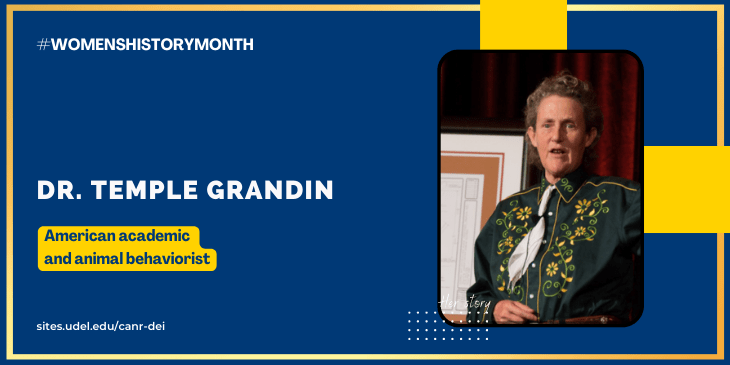Dr. Temple Grandon is one of the most famous and successful people with autism. She has devoted her life to reducing the stress of animals and people with autism.
Grandin was unable to talk at age three and exhibited many behavioral problems. As a child, she was withdrawn and extremely sensitive to touch and sound. She went through many hours of speech therapy and intensive teaching, enabling Temple to learn speech. She was later diagnosed with autism. Her parents, rejecting a doctor’s advice to place her in an institution, instead sent their daughter to a series of private schools where her high IQ was nurtured.
Mentoring by her high school science teacher and her aunt on her ranch in Arizona motivated Temple to study and pursue a career as a scientist and livestock equipment designer. She obtained her B.A. at Franklin Pierce College and her M.S. in Animal Science at Arizona State University. Dr. Grandin received her Ph.D. in Animal Science from the University of Illinois in 1989.
Dr. Grandin is a designer of livestock handling facilities and a Professor of Animal Science at Colorado State University. Facilities she has designed are located in the United States, Canada, Europe, Mexico, Australia, New Zealand and other countries. Almost half of North America’s cattle are handled in a center track restrainer system she designed for meat plants. Curved chute and race systems she has designed for cattle are used worldwide and her writings on the flight zone and other principles of grazing animal behavior have helped many people to reduce stress on their animals during handling.
She has also developed an objective scoring system for assessing the handling of cattle and pigs at meat plants. Many large corporations are using this scoring system to improve animal welfare. Other research areas are cattle temperament, environmental enrichment for pigs, reducing dark cutters and bruises, bull fertility, training procedures, horse perception of novel objects, and effective stunning methods for cattle and pigs at meat plants.
Grandin has said she can understand animals’ reactions to sensory stimuli because she has had the same reaction to loud noises and sudden movements. “Animals are very aware of small, sensory details in the environment,” and so are people on the autism spectrum, she said in a 2014 interview for the Stanford Medicine website.
Comments closed